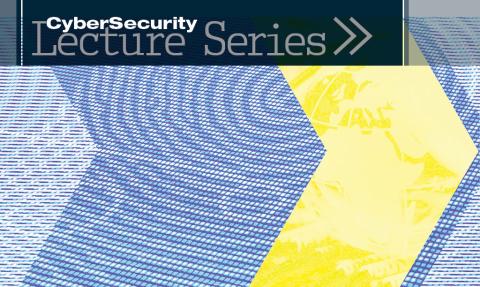event
Cybersecurity Lecture Series - Sept. 23
Primary tabs
Meet academic and industry leaders for intimate discussions about new cyber threats, trends and technologies.
The weekly Cybersecurity Lecture Series is a free, open-to-the-public lecture from a thought leader who is advancing the field of information security and privacy. Invited speakers include executives and researchers from private companies, government agencies, start-up incubators as well as Georgia Tech faculty and students presenting their research.
Held weekly each Friday at Noon through Dec. 2, lectures are open to all -- students, faculty, industry, government, or simply the curious. Students may register for credit under seminar course CS-8001-INF.
Complimentary lunch provided for registered guests. Please bring your own beverage.
Sign up to receive future lecture announcements.
Featuring Yeongjin Jang on Sept. 23
"Breaking Kernel Address Space Layout Randomization (KASLR) with Intel TSX"
Kernel hardening has been an important topic, as many applications and security mechanisms often consider the kernel their Trusted Computing Base (TCB). Among various hardening techniques, kernel address space layout randomization (KASLR) is the most effective and widely adopted technique that can practically mitigate various memory corruption vulnerabilities, such as buffer overflow and use-after-free. In principle, KASLR is secure as long as no memory disclosure vulnerability exists and high randomness is ensured. In this talk, we present a novel timing side-channel attack against KASLR, called DrK (De-randomizing Kernel address space), which can accurately, silently, and rapidly de-randomize the kernel memory layout by identifying page properties: unmapped, executable, or non-executable pages. DrK is based on a new hardware feature, Intel Transactional Synchronization Extension (TSX), which allows us to execute a transaction without interrupting the underlying operating system even when the transaction is aborted due to errors, such as access violation and page faults. In DrK, we turned this property into a timing channel that can accurately distinguish the mapping status (i.e., mapped versus unmapped) and execution status (i.e., executable versus non-executable) of the privileged address space. In addition to its surprising accuracy and precision, the DrK attack is not only universally applicable to all OSes, even under a virtualized environment, but also has no visible footprint, making it nearly impossible to be detected in practice. We demonstrate that DrK breaks the KASLR of all major OSes, including Windows, Linux, and OS X with near-perfect accuracy in a few seconds. Finally, we propose potential hardware modifications that can prevent or mitigate the DrK attack..
BIO
Yeongjin Jang is a Ph.D. student in the School of Computer Science at the Georgia Institute of Technology. His research is centered around operating system and mobile security. He especially focuses on finding ways of how a system can fail, then devising countermeasures to make the system more secure. In addition to academic research, he participates in various capture-the-flags (CTF) challenges, including DEF CON CTF, the DARPA Cyber Grand Challenge and more. He is a winner of the black badge from DEF CON 23 CTF.
Groups
Status
- Workflow status: Published
- Created by: Tara La Bouff
- Created: 08/16/2016
- Modified By: Fletcher Moore
- Modified: 04/13/2017
Categories
Keywords
User Data
Target Audience


